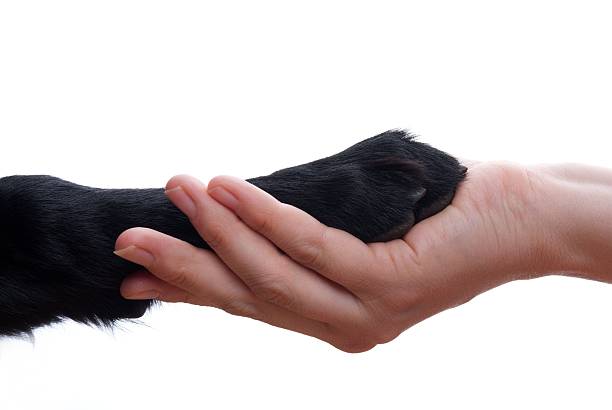How Dr. Duck Helps Aging Dogs Live Their Best Lives
Expert Advice Straight from Dr. Duck on Caring for Senior Dogs
From common health challenges to must-have products and heartfelt stories, Dr. Duck shares everything you need to know to ensure your senior dog’s golden years shine as brightly as possible.
Introduction to Dr. Duck and Their Mission 🌟

Dr. Duck’s passion for animals began in childhood and blossomed into a lifelong commitment to veterinary care. Inspired by a memorable moment helping a Chihuahua puppy with a broken leg, Dr. Duck has built a career rooted in compassion and expertise.
In this exclusive interview, Dr. Duck shares their wisdom on the challenges senior dogs face, the common mistakes pet parents should avoid, and the joy that comes from caring for these wise and loving companions. If you’re a pet parent to a senior dog—or want to be—this interview is packed with insights you won’t want to miss.
✨ Join our community of devoted senior dog parents today! Sign up for our newsletter and never miss expert tips, inspiring stories, and product recommendations tailored to senior dogs.
🗣️The Interview: Q&A with Dr. Duck

1. Question: When did you decide you wanted to become a vet?
Answer:
I've always wanted to be a veterinarian. One of my earliest memories is helping my mom, who’s also a vet, care for a Chihuahua puppy with a broken leg that she brought home to rehabilitate. From that moment on, I knew I wanted to dedicate my life to animals and medicine. Growing up, I spent countless hours caring for foster animals and helping at the vet clinic with cleaning, watching procedures, and learning everything I could about animals and veterinary medicine. Knowing how challenging it would be to become a vet, I put in long hours of study, carefully planned my classes, and worked in various veterinary environments to be as prepared as possible. Veterinary medicine has always been my passion and true calling.
2. Question: What are the most common senior dog issues you encounter?
Answer:
Senior dogs often face issues like arthritis, skin masses, organ failure, and cancer. The specific issues can vary from dog to dog, but the most important thing to know is that early detection and proactive management are key to keeping older dogs comfortable and happy.
3. Question: What is your favorite thing about senior dogs?
Answer:
Senior dogs are absolute gems. They’re wise, loving, and past their adolescent antics, they make the best companions. They’re incredibly comforting and often share deep bonds with their parents, having been through many chapters of life together.
4. Question: What are the biggest mistakes senior dog parents make?
Answer:
One common mistake is attributing changes in behavior solely to aging. While some changes are natural, it's crucial to have new symptoms evaluated, as they may signal early disease, pain, or other issues.
Overfeeding and allowing senior dogs to become overweight is another frequent issue; this can accelerate the aging process by up to two years. Keeping dogs at a healthy weight helps reduce strain on their joints and lowers the risk of many age-related health issues.
Addressing dental health is also very important. Most dogs have dental issues in their senior years that cause pain. There are rarely outward signs so routine anesthetic dental assessment and cleaning procedures are vital to making dogs comfortable. There are many options for dental care maintenance at home but most need a procedure to address problem teeth initially.
Finally, many pet parents underestimate the need for budgeting and planning for increased veterinary care as their dogs age. Routine screenings like blood work and imaging can detect diseases before symptoms appear. Catching these issues early gives us more treatment options and often leads to better outcomes and increased quality time.
5. Question: Do you have any pets yourself?
Answer:
Yes! I have Griffin, an 8-year-old terrier mix I adopted when he was surrendered to the shelter with a broken leg. He’s the best dog, and I love him more than anything. Over the years, I’ve cared for more than 30 pets and foster animals, including dogs, horses, cats, goats, rats, hamsters, budgies, and many others.
6. Question: What questions should pet parents be asking about their aging or senior dog?
Answer:
It’s important to ask what health issues your dog may be prone to based on their breed and individual characteristics. Then, discuss with your vet what can be done to monitor and manage these risks. Each dog faces unique challenges as they age, so it’s worth asking what practical steps you can take for your dog’s comfort and well-being, given your time and resources.
7. Question: Do you have any go-to product recommendations for senior dog parents?
Answer:
Yes, I recommend Help ‘Em Up Harnesses for dogs with mobility challenges, and Toenail Grips for dogs who have trouble on slippery floors. Joint supplements like Dasuquin and Cosequin are excellent for most aging dogs. Many senior dogs benefit from the comfort of thick orthopedic or elevated beds as well.
8. Question: What change would you like to see in the world related to senior dogs?
Answer:
I’d love to see pet parents better prepared for their dog’s senior years. Preventive care and early screening are often underutilized because many don’t realize their full value. Recognizing early signs and acting promptly would help us get ahead of issues and offer more management options.
Adjusting expectations and adapting activities for senior dogs is also essential. While they may not be as active as they once were, they still love to be involved, so making adjustments to help them enjoy life fully in their senior years is important.
9. Question: Are there any organizations (rescues, sanctuaries, etc.) that you would like to promote for their good work in the community?
Answer:
Dallas Pets Alive! does wonderful work through various programs that help pets find homes and stay with their families.
💡 Takeaways from the Interview

- Early detection and proactive care are crucial for a senior dog’s quality of life.
- Overfeeding and neglecting dental care are common but avoidable mistakes.
- Products like mobility harnesses and orthopedic beds can greatly improve a senior dog’s comfort and happiness.
Explore More Resources:
Stay up to date with Dr. Duck at her website to stay up to date on the best dog parent info possible. And be sure to follow her social channels as well!
Visit Dallas Pets Alive! to support their mission or learn more about adopting a senior pet. Whether you’re ready to open your heart and home by adopting a senior pet or simply want to contribute to their cause, every action makes a difference.




